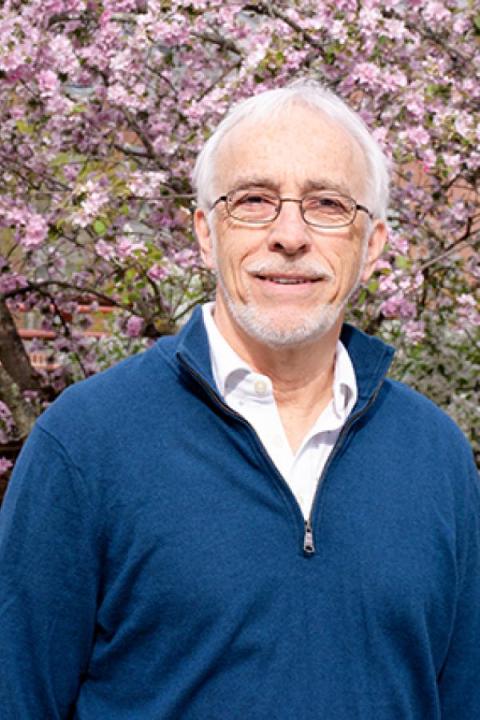Christopher Bauer is Professor of Chemistry and the 1992 recipient of the UNH Jean Brierley teaching award. His degree history includes a Bachelors (1974, University of Notre Dame), a Masters (1976, University of Illinois), and a move with his advisor David Natusch to Colorado State University to complete his PhD in analytical chemistry in 1979. For two years he was a postdoc at the Water Resources Center (advisors Anders Andren, Mark Anderson) on environmental problems related to coal combustion emissions. Chris continued to work in environmental chemistry and plasma spectroscopy for a decade, and then his interests shifted to student learning. For 25 years, he has contributed to the scholarly development of the Chemistry Education Research field through research, curriculum and assessment projects, policy development, and designing professional development for teachers, kindergarten through graduate students and faculty. He coordinates and teaches the General Chemistry program at UNH, mentors more than 50 undergraduate peer learning assistants, and served on the development and advisory committees for the UNH Center for Excellence and Innovation in Teaching and Learning, and for the Leitzel Center for STEM education and outreach. Chris chaired the 2007 Gordon Conference on Chemical Education Research and Practice and served for 9 years, including as chair, on the Board of Publication (Division of Chemical Education ACS) which oversees the Journal of Chemical Education.
Our interests include making sense of student misconceptions in understanding of chemistry and chemical representations; development of assessments for student attitudes, self-perceptions, motivation, and behaviors regarding learning and coursework, and using these to guide interventions; discovery-based college chemistry lessons and curricula; and faculty beliefs and practices.
- Using assessment of affective student characteristics to identify those at risk of academic difficulties
- Understanding sources of student illusions of competence
- Windows on the inquiry classroom: Full course, instructor-and-apprentice-annotated video for professional development in STEM inquiry teaching. A reality-TV version of a college science course “Fire and Ice” about understanding of heat and temperature, NSF
- ELIPSS: Enhanced Learning by Improving Process Skills in STEM (collaborator) NSF
- Longitudinal Impact of PLTL on Student and Peer Leader Retention of General Chemistry Concepts and Attitudes toward Chemistry (with Scott Lewis, USF), NSF
- Research-based assessment of attitudes for informal science events
- Clinical and course studies of student chemical misconceptions and representations
- Retrospective perceptions of high-school chemistry learning
- Large classroom pedagogy, including POGIL (Process-Oriented Guide Inquiry Learning)
His continuing collaborations include the Process-Oriented Guided Inquiry Learning Project and several current NSF funded projects as a project assessment consultant.
- Learning road-blocks (so-called misconceptions) and how to address them pedagogically
- Assessment and building of student attitudes, metacognition, and motivation
- Active inquiry and collaborative learning models for small and large classrooms, particularly non-science majors, preservice teachers, analytical and general chemistry
- Peer-Lead Team Learning by which successful students learn to guide others in learning

